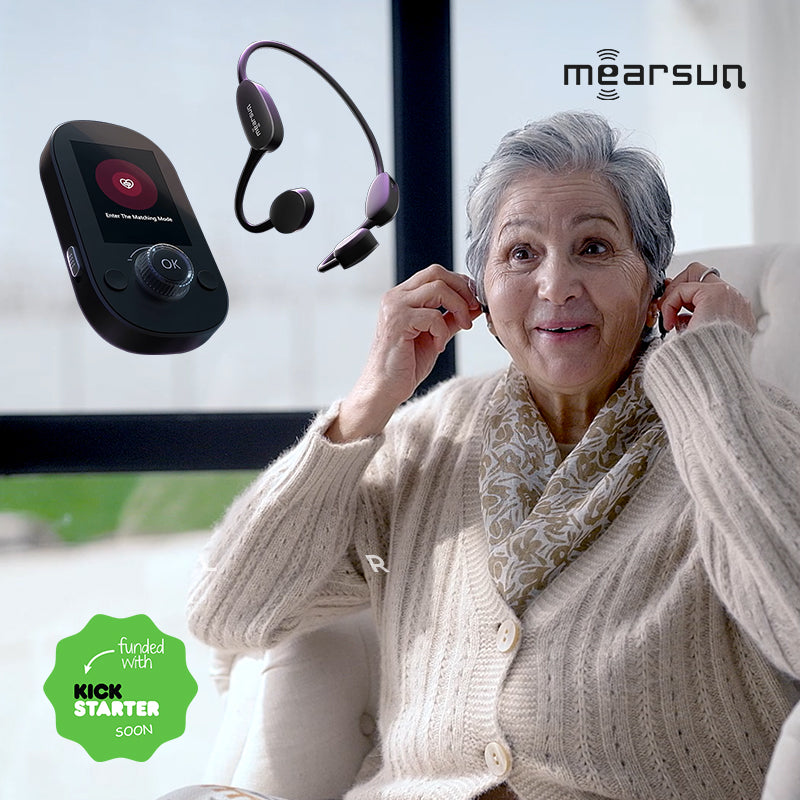Hearing changes often happen gradually—so gradually that you might not even realize how much you’ve been missing until someone points it out. Maybe your grandkids have been teasing you about the TV volume. Or perhaps you’ve started bowing out of dinners out because following conversations feels like work.
If this sounds familiar, you’re not alone. Millions of Americans experience hearing changes, yet many wait years before doing anything about it. The good news? Recognizing the signs early can make a meaningful difference in your quality of life.
Noticing the Little Things: Everyday Signs Your Hearing May Need Support
🗣️ “Could You Repeat That?”
If you find yourself asking people to speak up or repeat themselves—especially in places like cafes, family gatherings, or on the phone—it’s worth paying attention. This is often one of the earliest and most common signals.
📺 The Volume Knob Creeps Up
When your spouse or neighbors comment that your television is too loud, or you consistently need to turn up the volume higher than before to clearly hear dialogue or your favorite songs, it may be more than just background noise.
🧓 You Feel Left Out in Groups
Struggling to follow conversations when multiple people are talking, or finding yourself smiling and nodding without really understanding what’s being said, can be a sign that your ears aren’t picking up everything they used to.
😓 You Feel Tired After Socializing
“Hearing fatigue” is real. If you feel mentally drained after conversations or social events because of the effort it takes to listen, it could indicate your brain is working harder to compensate for unclear sound input.
🔔 Everyday Sounds Fade
You might not notice you’re missing the gentle chirp of birds, the beep of a microwave, or the blinkers in your car—until someone points out that you didn’t respond.
Why Waiting Isn’t the Best Idea
It’s easy to put off addressing hearing changes. But the truth is, waiting can make the adjustment harder later—both for your brain and your lifestyle.
Research has shown that when hearing ability declines, the parts of our brain responsible for interpreting sound can become less active. This can make it more difficult to readjust to clearer sound later if hearing aids are introduced years after hearing loss begins.
Beyond that, hearing is deeply tied to emotional well-being. People who have trouble hearing often withdraw from social events, not because they don’t want to participate, but because it’s frustrating or embarrassing to constantly ask others to repeat themselves.
What to Do If You’re Noticing Changes
If any of the above scenarios hit home, the next step is simpler than you might think.
-
Talk to a hearing specialist. A comprehensive hearing test is painless, often free, and can give you a clear understanding of your hearing health.
-
Consider your daily habits. Do you spend time in noisy environments? Do you talk on the phone often? Do you enjoy outdoor activities? Your lifestyle can help determine what kind of support might be right for you.
-
Explore modern options. Today’s hearing aids aren’t the bulky, whistling devices your grandfather might have worn. Many are nearly invisible, Bluetooth-compatible, and designed for active lives. Some, like bone conduction models, don’t even go inside your ears—making them ideal for people with sensitivity, wax issues, or those who simply prefer an open-ear feeling.
You Don’t Have to “Just Live With It”
Hearing well is about more than catching every word—it’s about staying connected to the people and moments that matter. If you’ve been making compromises or feeling left out of conversations, it might be time to take that first step.
Whether you’re considering a hearing aid for yourself or a loved one, the most important thing is to act before isolation sets in. You deserve to hear life clearly—and you certainly don’t deserve to feel alone in the process.
If this resonated with you, consider sharing it with someone who might need it. Sometimes a gentle nudge from a loved one is all it takes to make a positive change.


Share:
Understanding Hearing Technology: Limitations of Conventional Aids & Innovations in Bone Conduction
The Surprising Link Between Hearing Aid Use and Cognitive Health: What New Research Reveals